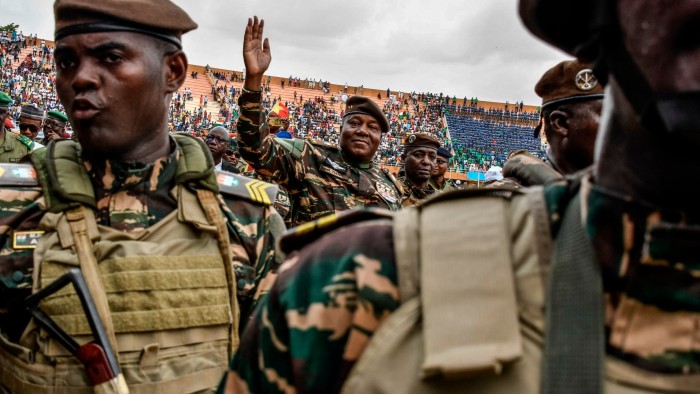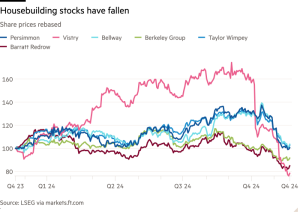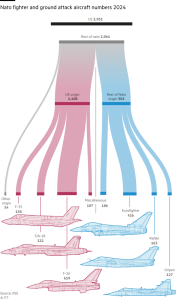Military juntas in Africa’s ‘coup belt’ fail to contain extremist violence

Unlock the Editor’s Digest for free
Roula Khalaf, Editor of the FT, selects her favourite stories in this weekly newsletter.
Military juntas in the Sahel have failed to contain a surge in jihadi violence, with fatalities rising in the years since they took over pledging to bring security to a region that became known as Africa’s “coup belt”.
Mali, Burkina Faso and Niger were all taken over by military governments between 2020 and 2023 as soldiers seized on popular anger against democratic governments for their failure to stop the Islamist and insurgent violence that had plagued the region for more than a decade.
Yet instead of ushering in a new era of security in the central Sahel, the semi-arid strip south of the Sahara, extremist groups have become emboldened over the past year.
Fatalities across the three countries reached a record 7,620 deaths in the first half of this year, according to Acled, a non-profit tracking global conflict, up 190 per cent from the same time in 2021. The figure for the full year could well surpass last year’s total of nearly 14,000.
One assault in September by al-Qaeda affiliate Jama’a Nusrat ul-Islam wa al-Muslimin on the Malian capital Bamako, the first of its kind since 2015, killed at least 50 people. The group also killed more than 100 Burkinabe soldiers in June while Tuareg rebels in northern Mali in July killed scores of soldiers and mercenaries from Russia’s Wagner Group.
“The recent large-scale attacks in Mali and Burkina Faso directly challenge the official narrative promoted by the military governments,” said Mucahid Durmaz, a senior analyst at risk intelligence company Verisk Maplecroft.
“Despite the consolidation of absolute power and relative public support they have enjoyed, the militaries have failed to stem the violent expansion of the militant groups — undermining the justification they used to seize power.”
The wave of coups began in Mali in 2020, when soldiers removed president Ibrahim Boubacar Keïta from office before army strongman Assimi Goïta staged a second coup nine months later. Burkina Faso experienced two coups in 2022 while mutinous soldiers overthrew western ally Mohamed Bazoum in Niger last year.
They also tapped into widespread discontent about the former governments’ failures to tackle poverty, with nearly half of the population of all three countries living below the poverty line.

The juntas have led a broader geopolitical realignment, kicking out forces from the former colonial power France and taking an increasingly adversarial stance with western governments and companies.
In turn, they have drawn ever closer to Russia, employing mercenaries from the erstwhile Wagner Group, which has now morphed into a new Russian defence ministry-controlled entity called Africa Corps.
Nowhere is the failure to keep their citizens safe more evident than in Burkina Faso, where the government controls less than half of its territory and nearly 10 per cent of the 20mn population has been displaced.
Durmaz said the juntas were struggling to contain the violence because their militaries are underfunded and ill-equipped against nimble insurgent groups. He said their Russian partners were mostly focused on regime protection, securing access to natural resources and have little experience fighting mobile groups in remote desert areas.
Human rights groups have also reported indiscriminate attacks on civilians by armies in the region.
The juntas are now increasingly concentrating power and shunning calls for a transition to democratic rule.
Mali’s Goïta, who promoted himself to the rank of army general in October, fired his civilian prime minister last week for questioning the slow pace of the transition and replaced him with a military officer. Burkina Faso’s military junta extended its reign until at least 2029 and cancelled elections promised for this year.
“For the time being, the people support the [Malian] junta,” said Bamako-based Ulf Laessing, Sahel programme director for German think-tank Konrad Adenauer Foundation.
“People want a fresh start,” he said. “But . . . the junta is conscious that the goodwill can’t last for ever, so they’re currently using [it] to entrench themselves before people start criticising them.”
#Military #juntas #Africas #coup #belt #fail #extremist #violence






